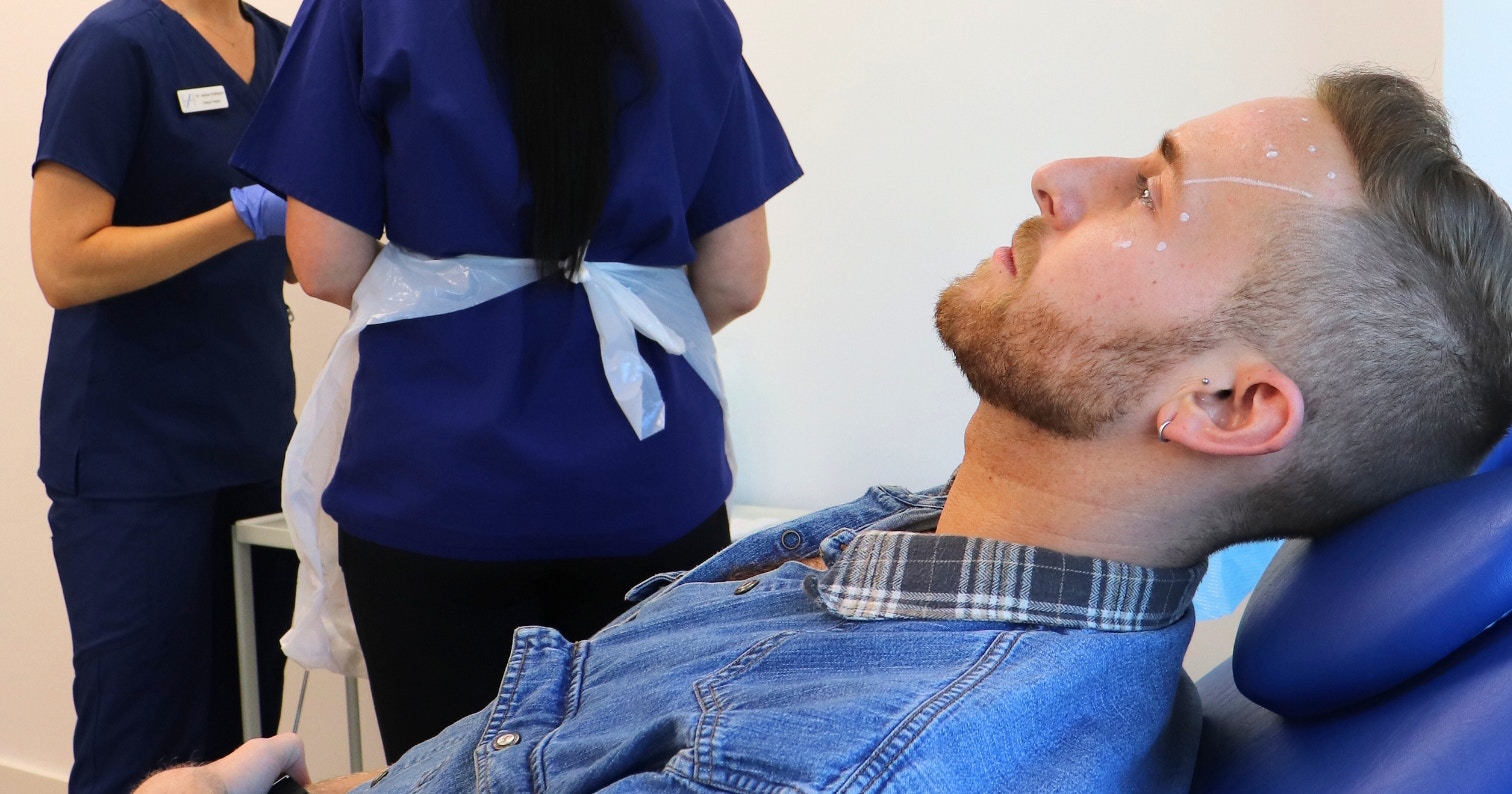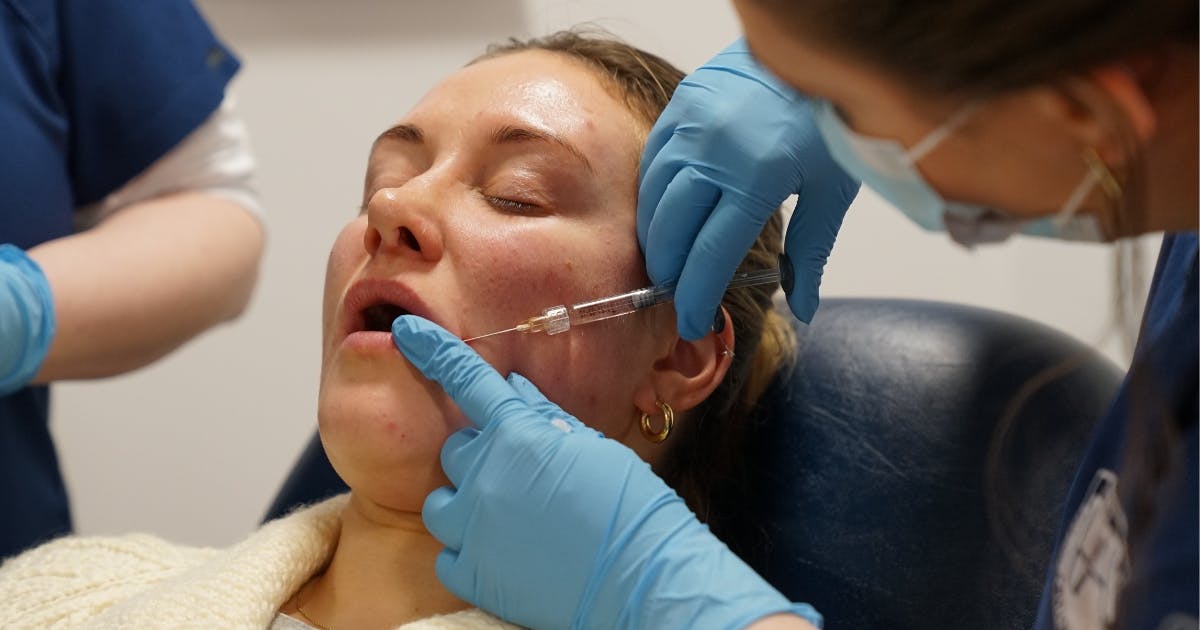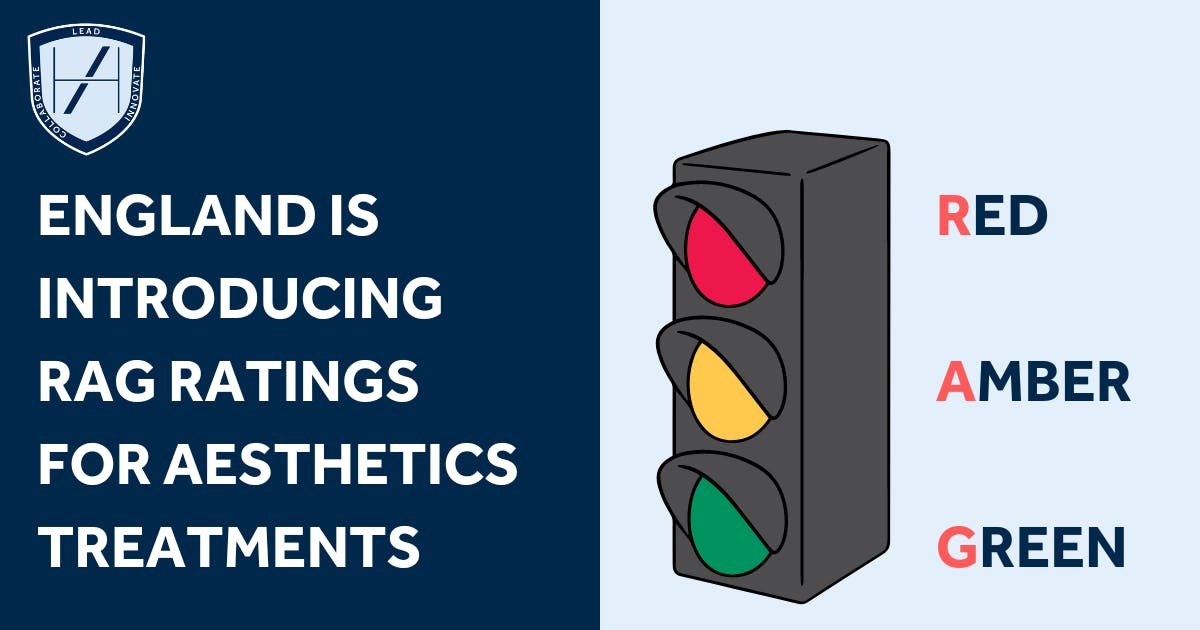Should Non-Medics Be Able to Complete the Level 7 in Injectables?

Should non-medics be able to complete the Level 7 in injectables course? How would you feel about people with no healthcare background obtaining a postgraduate level qualification in botox and fillers?
Speculation has started regarding whether non-medics may soon have access to the same aesthetic medicine training courses as healthcare professionals.
These discussions spring from wondering what the government will do to tackle the issue of non-clinicians practising medical aesthetics.
As the aesthetics licensing scheme proposals continue to be unveiled for England, we’re all wondering - will there be an even playing field for medics and non-medics when it comes to aesthetics qualifications? And, if so, if everyone has to reach the same standard in order to gain their licence to practice, is this a bad thing?
We spoke to Professor David Sines, CBE for his thoughts on this controversial topic. First, however, let’s look at the current landscape for aesthetic training requirements in England…

What injectables training do medics and non-medics currently require in England?
Right now, healthcare professionals are the only cohort to have any training requirements placed on them regarding aesthetic practice.
Qualifications non-medic aesthetics practitioners are required to hold
Presently, non-medics do not need to have completed any botox or filler courses, nor have obtained any aesthetics qualifications, to practice injectables in England.
This area is entirely unregulated except for their premises being subject to normal local health and safety standards. These are monitored for compliance by local authorities across the UK.
Whilst many lay injectors do choose to undertake injectables courses, the quality of these is frequently questionable. Bogus aesthetics schools have popped up to meet this need given universities and specialist aesthetic medicine training providers, such as Harley Academy, do not admit non-medics.
These frequently advertise incredibly expensive courses on social media that provide little-to-no value for trainees. A BBC undercover investigation into just a handful of these courses found extremely concerning, lax health and safety standards. Questionable “barbaric” techniques were being taught to good faith attendees, who’d paid considerable sums of money for this non-regulated aesthetics training.
How medical aesthetics practitioners are currently regulated
Meanwhile, medical professionals such as cosmetic doctors, dentists, nurses and clinical pharmacists, are answerable to their professional bodies. These include the General Medical Council, General Dental Council, Nursing & Midwifery Council and General Pharmaceutical Council.
Insurance is also mandatory and this will often detail the type of training that must be successfully completed based on your scope of practice and cover.
Failure to comply and uphold the Code of Conduct standards you signed up to when you joined your professional body may result in sanctions. These could even cause you to be struck off.
Healthcare professionals are, therefore, expected to hold their initial medical degree(s) and have completed further postgraduate aesthetic medicine training relevant to their scope of practice.
At the most elementary level, this would be a Foundation Training in Botox & Dermal Fillers course. This provides the initial injectables certification required to obtain insurance to practice.
Further training in any additional services could also be undertaken in addition - a Profhilo course, for example.
Cosmetic nurses also need to successfully complete a V300 course if they wish to become an aesthetics prescriber. Without this qualification, they will need to engage a third party in order to have access to prescription-only medications such as botulinum toxin.
Introducing a minimum standard of education for all aesthetics practitioners in England
The government, via the Department of Health & Social Care (DHSC), is currently rolling out proposals for the introduction of an aesthetics licensing scheme for England. This is part of its campaign to regulate the non-surgical cosmetic industry.
Whilst confirmed details are few and far between at the time of writing, what we do know is that two mandatory licences will be introduced. Every aesthetic practitioner will require a licence to practice and a licence for their premises.
In order to obtain the practice licence, it has been largely surmised that a minimum standard of aesthetic medicine education will be required. Whilst it has been widely speculated that this will be the Level 7 Diploma in Botox & Dermal Fillers, this has not been confirmed.
The reason the Level 7 in injectables has been spoken about in this way is due to it being the only postgraduate aesthetics qualification course mapped to the government’s original framework for delivering this type of training. You can find out more about this in our previous article, Will I Need a Level 7 in Injectables to Get My Aesthetics Licence?
Equity of access to aesthetics training for medics and non-medics?
Professor David Sines, CBE, is the Chair of the Joint Council for Cosmetic Practitioners (JCCP) and Harley Academy’s Licensing Advisor. With many years of experience in campaigning for aesthetics regulation, he is a well-respected and hugely informed figure in the sector.
He told he he’s often asked where “non-clinicians or non-regulated healthcare professionals fit within the envisioned model for the future?” This is his response:
“The first thing is, we recognise there should be one standard for any practitioner, irrespective of their background,” states Prof. Sines.
“As we start to really consider the skills and the knowledge required for these advanced procedures, such as botulinum toxin injections and dermal fillers, there is advanced anatomy and advanced physiology and, of course, there are significant clinical skills required with injecting practice.
“The knowledge of our anatomy and physiology goes together with those practise skills plus the requirements to undertake what I'm going to call 'a differential assessment'.
No compromise on the outcome standard
“When we start to see potential complications emerging, when we think of psychological and emotional assessment, it takes a significant amount of experience, skill and competence and knowledge to put that together.
“So, if the education and training standards set down by DHSC encompass all of those issues, which I envision them to, then if a non-clinician can actually progress to demonstrate they've achieved those standards, then there is no reason why they should not receive a practitioner licence.
“But - one other thing - in the current consultation proposal, any non-registered healthcare practitioner that can meet the standards to achieve the licence will still need to work under the supervision of a regulated healthcare practitioner. So, public safety, public protection, equality of access to training - yes. But the outcome standard can never be compromised.”
Where RAG-rating comes into this discussion
It’s worth noting that this would potentially apply to green and amber RAG-rated treatments under the new aesthetics regulation. These include the likes of botox and fillers, skin boosters, chemical peels, microneedling and other non-invasive or minimally invasive procedures.
Red-rated treatments - those more invasive procedures that carry significant risks to public safety - are likely to be restricted to qualified and regulated healthcare professionals only. This is what was set out in the DHSC’s original proposals and they may also require Care Quality Commission (CQC) registration. Examples of potential red procedures include breast augmentation, cellulite subcision, and ablative and CO2 laser treatments.

Equality of access to training and non-medics to treat under supervision - do you agree?
Based on Professor Sines’ outline of the potential scenario above, consider this…
If non-clinicians - aesthetic practitioners with no medical background - were to successfully complete the following steps, would you be comfortable with them practising? Do you feel this would be a good solution to the current issue of unregulated and under-trained lay individuals offering injectables?
- Obtain the mandatory high-level aesthetics qualification set by the DHSC (even if this takes longer for them to achieve than medical professionals)
- Work with a prescriber
- Practise under the supervision of a regulated healthcare professional.
We’d love to hear your thoughts on this scenario.
- Are you flexible on finding a resolution to the issue of non-medic injectors?
- Do you believe the same qualification and supervised approach could work?
- Should aesthetic medicine be restricted to purely the domain of medical professionals?
- If so, which medical professions..?
Please comment on our post about this on the Harley Academy Instagram to share your views on this important issue.
Where we stand on this issue
You will find our stance clearly set out in the response we sent to the first DHSC proposal. Here’s an extract from this, which sets out our stall:
“Harley Academy is of the opinion that only designated and experienced registered healthcare professionals (working within the scope and range of their professional competence), who have undertaken an informed pre-treatment consultation and assessment, and who have exercised their clinical judgement with the patient, can determine whether a consultation and/or a procedure is ‘medical’ or ‘medically related’.”
We are also of the opinion that “the administration of all procedures that involve the use of a prescription only medicine as part of the actual application, as an adjunctive requirement, such as the use of lidocaine or adrenaline, or any procedure that involves the use of a prescription only medicine to manage a complication arising from an aesthetic procedure, should be supervised by a professionally regulated prescriber who is present on-site when the procedure itself is conducted.
“Our preference is that such procedures (including the administration of all “dermal fillers”, injectable toxins, injectable vitamins and injectable weight loss treatments) should move to the RED Category.
“We consider that the terminology "soft tissue filler" is more accurate and appropriate than "dermal filler" as they are generally injected into the subdermal layers rather than the dermis where they can cause greater complications due to the presence of important structures and vessels beneath the skin.
“Harley Academy recognises, however, that the administration of injectable toxins and soft dermal fillers by non-healthcare practitioners is currently endemic. We also recognise that an economic impact assessment might not permit the transfer of these specific procedures to the ‘RED’ category.
“Should it therefore not be possible to restrict the administration of these procedures to a designated and appropriately trained regulated healthcare practitioner, then Harley Academy is of the firm opinion that the administration of injectable toxins, and soft tissue fillers, should only take place if a regulated prescriber is present on the premises at the time of administration, having first conducted a face to face consultation prior to prescribing any required prescription only medication required for treatment or the management of a complication.
“For the avoidance of doubt, we do not advocate non-medical practitioners carrying out such treatments.”
When will we find out more about this?
We understand that the DHSC is due to release its update by the end of June 2024 - previously expected ‘after Easter’. This will comprise the outcome of the public consultation following its initial proposal relating to introducing a RAG rating system for non- surgical treatments.
It is hoped that the proposals regarding a minimum standard of education for all aesthetic practitioners will follow this, later in 2024.
As always, the topic of aesthetics regulation remains close to our hearts and we’ll bring you updates as they become available. To review previous news on this subject, you can review our Aesthetic Medicine Articles ‘Regulation’ tab at any time.
All information correct at the time of publication
Download our full prospectus
Browse all our injectables, dermal fillers and cosmetic dermatology courses in one document
By submitting this form, you agree to receive marketing about our products, events, promotions and exclusive content. Consent is not a condition of purchase, and no purchase is necessary. Message frequency varies. View our Privacy Policy and Terms & Conditions
Attend our FREE open evening
If you're not sure which course is right for you, let us help
Join us online or in-person at our free open evening to learn more
Our Partners













STAY INFORMED
Sign up to receive industry news, careers advice, special offers and information on Harley Academy courses and services


